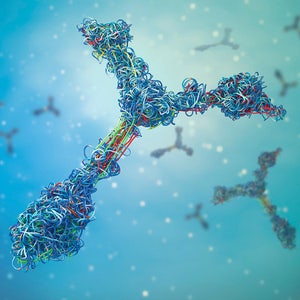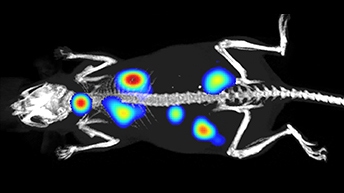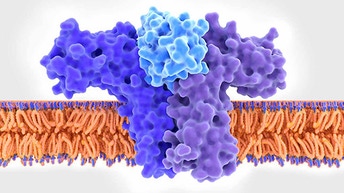Explore our solutions
Questions?
We're here to help.
Contact us Revvity is a trademark of Revvity, Inc. All other trademarks are the property of their respective owners.
Learn about our world class antibodies for a diverse set of research areas including immunology, neuroscience, cancer, stem cells and cell biology.


Shop now with promo code HELLO10. Exclusions apply.


Shop now with promo code HELLO10. Exclusions apply.


Shop now with promo code HELLO10. Exclusions apply.


Shop now with promo code HELLO10. Exclusions apply.


Shop now with promo code HELLO10. Exclusions apply.


Shop now with promo code HELLO10. Exclusions apply.


Shop now with promo code HELLO10. Exclusions apply.


Shop now with promo code HELLO10. Exclusions apply.


Shop now with promo code HELLO10. Exclusions apply.


Shop now with promo code HELLO10. Exclusions apply.


Shop now with promo code HELLO10. Exclusions apply.


Shop now with promo code HELLO10. Exclusions apply.


Shop now with promo code HELLO10. Exclusions apply.


Shop now with promo code HELLO10. Exclusions apply.


Shop now with promo code HELLO10. Exclusions apply.


Shop now with promo code HELLO10. Exclusions apply.


Shop now with promo code HELLO10. Exclusions apply.


Shop now with promo code HELLO10. Exclusions apply.


Shop now with promo code HELLO10. Exclusions apply.


Shop now with promo code HELLO10. Exclusions apply.


Shop now with promo code HELLO10. Exclusions apply.


Shop now with promo code HELLO10. Exclusions apply.


Shop now with promo code HELLO10. Exclusions apply.


Shop now with promo code HELLO10. Exclusions apply.


Shop now with promo code HELLO10. Exclusions apply.


Shop now with promo code HELLO10. Exclusions apply.


Shop now with promo code HELLO10. Exclusions apply.


Shop now with promo code HELLO10. Exclusions apply.


Shop now with promo code HELLO10. Exclusions apply.


Shop now with promo code HELLO10. Exclusions apply.


Shop now with promo code HELLO10. Exclusions apply.


Shop now with promo code HELLO10. Exclusions apply.


Shop now with promo code HELLO10. Exclusions apply.


Shop now with promo code HELLO10. Exclusions apply.


Shop now with promo code HELLO10. Exclusions apply.


Shop now with promo code HELLO10. Exclusions apply.


Shop now with promo code HELLO10. Exclusions apply.


Work with our experienced scientific team and leverage our advanced technologies to help accelerate the preclinical drug discovery process.


Work with our experienced scientific team and leverage our advanced technologies to help accelerate the preclinical drug discovery process.


Work with our experienced scientific team and leverage our advanced technologies to help accelerate the preclinical drug discovery process.


Work with our experienced scientific team and leverage our advanced technologies to help accelerate the preclinical drug discovery process.


Work with our experienced scientific team and leverage our advanced technologies to help accelerate the preclinical drug discovery process.


Work with our experienced scientific team and leverage our advanced technologies to help accelerate the preclinical drug discovery process.


Work with our experienced scientific team and leverage our advanced technologies to help accelerate the preclinical drug discovery process.


Work with our experienced scientific team and leverage our advanced technologies to help accelerate the preclinical drug discovery process.


Work with our experienced scientific team and leverage our advanced technologies to help accelerate the preclinical drug discovery process.


Revvity's Oxford Diagnostic Laboratories is a large referral laboratory for tuberculosis testing services based on our T-SPOT technology.


Revvity's Oxford Diagnostic Laboratories is a large referral laboratory for tuberculosis testing services based on our T-SPOT technology.


Revvity's Oxford Diagnostic Laboratories is a large referral laboratory for tuberculosis testing services based on our T-SPOT technology.


Revvity's Oxford Diagnostic Laboratories is a large referral laboratory for tuberculosis testing services based on our T-SPOT technology.


Revvity's Oxford Diagnostic Laboratories is a large referral laboratory for tuberculosis testing services based on our T-SPOT technology.


Revvity's Oxford Diagnostic Laboratories is a large referral laboratory for tuberculosis testing services based on our T-SPOT technology.


Revvity's Oxford Diagnostic Laboratories is a large referral laboratory for tuberculosis testing services based on our T-SPOT technology.


Revvity's Oxford Diagnostic Laboratories is a large referral laboratory for tuberculosis testing services based on our T-SPOT technology.


Revvity's Oxford Diagnostic Laboratories is a large referral laboratory for tuberculosis testing services based on our T-SPOT technology.


Revvity's Oxford Diagnostic Laboratories is a large referral laboratory for tuberculosis testing services based on our T-SPOT technology.


Revvity's Oxford Diagnostic Laboratories is a large referral laboratory for tuberculosis testing services based on our T-SPOT technology.


Revvity's Oxford Diagnostic Laboratories is a large referral laboratory for tuberculosis testing services based on our T-SPOT technology.


Revvity's Oxford Diagnostic Laboratories is a large referral laboratory for tuberculosis testing services based on our T-SPOT technology.


Revvity's expression platform provides an enhanced system for the development and manufacturing of biotherapeutics that can be used in commercial manufacturing applications.


Revvity's expression platform provides an enhanced system for the development and manufacturing of biotherapeutics that can be used in commercial manufacturing applications.


Revvity's expression platform provides an enhanced system for the development and manufacturing of biotherapeutics that can be used in commercial manufacturing applications.


Revvity's expression platform provides an enhanced system for the development and manufacturing of biotherapeutics that can be used in commercial manufacturing applications.


Revvity's expression platform provides an enhanced system for the development and manufacturing of biotherapeutics that can be used in commercial manufacturing applications.


Revvity's Oxford Diagnostic Laboratories is a large referral laboratory for tuberculosis testing services based on our T-SPOT technology.


Revvity's Oxford Diagnostic Laboratories is a large referral laboratory for tuberculosis testing services based on our T-SPOT technology.


Revvity's Oxford Diagnostic Laboratories is a large referral laboratory for tuberculosis testing services based on our T-SPOT technology.


Revvity's Oxford Diagnostic Laboratories is a large referral laboratory for tuberculosis testing services based on our T-SPOT technology.


Revvity's Oxford Diagnostic Laboratories is a large referral laboratory for tuberculosis testing services based on our T-SPOT technology.


Revvity's Oxford Diagnostic Laboratories is a large referral laboratory for tuberculosis testing services based on our T-SPOT technology.


Revvity's Oxford Diagnostic Laboratories is a large referral laboratory for tuberculosis testing services based on our T-SPOT technology.


Revvity's Oxford Diagnostic Laboratories is a large referral laboratory for tuberculosis testing services based on our T-SPOT technology.


Revvity's Oxford Diagnostic Laboratories is a large referral laboratory for tuberculosis testing services based on our T-SPOT technology.


Revvity's Oxford Diagnostic Laboratories is a large referral laboratory for tuberculosis testing services based on our T-SPOT technology.


Revvity's Oxford Diagnostic Laboratories is a large referral laboratory for tuberculosis testing services based on our T-SPOT technology.


Revvity's Oxford Diagnostic Laboratories is a large referral laboratory for tuberculosis testing services based on our T-SPOT technology.


Shop now with promo code HELLO10. Exclusions apply.


Shop now with promo code HELLO10. Exclusions apply.


Shop now with promo code HELLO10. Exclusions apply.


Shop now with promo code HELLO10. Exclusions apply.


Shop now with promo code HELLO10. Exclusions apply.


Shop now with promo code HELLO10. Exclusions apply.


Shop now with promo code HELLO10. Exclusions apply.


Shop now with promo code HELLO10. Exclusions apply.


Driving meaningful innovation that profoundly impacts science and human lives.


Driving meaningful innovation that profoundly impacts science and human lives.


Driving meaningful innovation that profoundly impacts science and human lives.


Driving meaningful innovation that profoundly impacts science and human lives.


Shop now with promo code HELLO10. Exclusions apply.


Shop now with promo code HELLO10. Exclusions apply.


Shop now with promo code HELLO10. Exclusions apply.


Shop now with promo code HELLO10. Exclusions apply.


Shop now with promo code HELLO10. Exclusions apply.


Shop now with promo code HELLO10. Exclusions apply.


Shop now with promo code HELLO10. Exclusions apply.


Shop now with promo code HELLO10. Exclusions apply.


Shop now with promo code HELLO10. Exclusions apply.


Shop now with promo code HELLO10. Exclusions apply.


Quickly find and download manuals, safety documents, certificates of analysis and more.


Quickly find and download manuals, safety documents, certificates of analysis and more.


Quickly find and download manuals, safety documents, certificates of analysis and more.


Quickly find and download manuals, safety documents, certificates of analysis and more.


Quickly find and download manuals, safety documents, certificates of analysis and more.


Quickly find and download manuals, safety documents, certificates of analysis and more.


Quickly find and download manuals, safety documents, certificates of analysis and more.


Quickly find and download manuals, safety documents, certificates of analysis and more.


Quickly find and download manuals, safety documents, certificates of analysis and more.


Quickly find and download manuals, safety documents, certificates of analysis and more.


Quickly find and download manuals, safety documents, certificates of analysis and more.


Quickly find and download manuals, safety documents, certificates of analysis and more.


Quickly find and download manuals, safety documents, certificates of analysis and more.


Quickly find and download manuals, safety documents, certificates of analysis and more.


Quickly find and download manuals, safety documents, certificates of analysis and more.


Quickly find and download manuals, safety documents, certificates of analysis and more.


Quickly find and download manuals, safety documents, certificates of analysis and more.


Quickly find and download manuals, safety documents, certificates of analysis and more.


Quickly find and download manuals, safety documents, certificates of analysis and more.


Quickly find and download manuals, safety documents, certificates of analysis and more.


Quickly find and download manuals, safety documents, certificates of analysis and more.


Quickly find and download manuals, safety documents, certificates of analysis and more.


Quickly find and download manuals, safety documents, certificates of analysis and more.


Quickly find and download manuals, safety documents, certificates of analysis and more.


Quickly find and download manuals, safety documents, certificates of analysis and more.


Quickly find and download manuals, safety documents, certificates of analysis and more.


Quickly find and download manuals, safety documents, certificates of analysis and more.


Quickly find and download manuals, safety documents, certificates of analysis and more.


Quickly find and download manuals, safety documents, certificates of analysis and more.


Quickly find and download manuals, safety documents, certificates of analysis and more.


Quickly find and download manuals, safety documents, certificates of analysis and more.


Hearing the word "can't" is our call to action!
We help scientists, researchers, and clinicians overcome the world's greatest health obstacles.
View our story
Featured brand: BioLegend
Learn about our world-class antibodies for a diverse set of research areas including immunology, neuroscience, cancer, stem cells and cell biology.
Visit BioLegend.com


Select your location.
*e-commerce not available for this region.
Get exclusive pricing on all online purchases.
Login to your Revvity.com account for your account's pricing, easy re-ordering from favorites & order history, priority order processing, and dynamic order tracking.
Initiate a new order or access test status and results for clinical genomics or newborn screening services.
Many scientists have noted the significance of inflammation on disease progression, with evidence suggesting that chronic inflammation is a staple feature of complex neurological disorders such as neurodegeneration. Neuroinflammation is thought to play a key role in diseases such as Alzheimer’s and Parkinson’s due to the promotion of various pro-inflammatory mediators and pathways. These can elicit detrimental effects on typically homeostatic processes that maintain the health of the brain and blood-brain barrier by cells such as microglia and astrocytes.
We offer a wide variety of solutions for high-throughput detection of cytokines and interleukins such as TNF-α, IL-1β, and IL-6; corresponding downstream kinase pathways; various neurotrophic factors such as BDNF; and proteins such as TREM2, SYK, and phospho ubiquitin Ser65. This is of great importance due to their involvement in processes such as oxidative stress response, mitophagy, and phagocytosis that modulate neuroprotection and neuronal health affected by chronic neuroinflammation.

Revvity is a trademark of Revvity, Inc. All other trademarks are the property of their respective owners.


